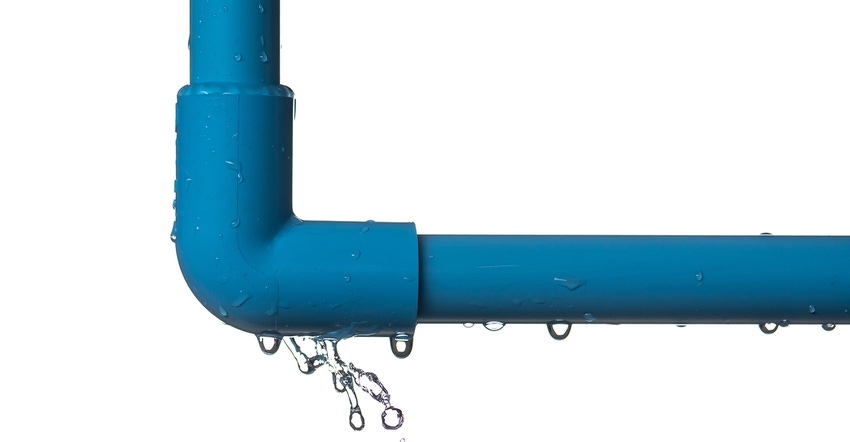Report co-authored by Beyond Plastics argues that $15 billion in federal funds should not be used to replace toxic lead service lines with PVC pipes.
April 20, 2023

A report published not coincidentally just ahead of Earth Day (April 22), warns anew of the potential safety concerns revolving around the use of PVC pipes for drinking water. I say anew because "The Perils of PVC Plastic Pipes," co-published by Beyond Plastics, Environmental Health Sciences, and the Plastic Pollution Coalition, does not reveal any new findings on the potential health consequences of PVC piping. Rather, the author reviewed published literature and placed those concerns within the context of $15 billion in federal money that has been allocated to municipalities to replace toxic lead service lines.
“While I strongly support the replacement of lead service lines, we need to know that the replacement pipe material is safe, and there’s definitely not enough scientific evidence to suggest that PVC is,” said Judith Enck, president of Beyond Plastics and former EPA regional administrator under the Obama administration in a news release distributed by Beyond Plastics.
The report noted that the $15 billion provided by the federal government does not offer “guidance around what piping materials should be used to prevent homes from swapping one problematic material for another.” It also cited the recent train derailment and chemical spill in East Palestine, OH, as a “vivid example” of the threat that vinyl chloride poses to Americans. The material is an “essential ingredient” of PVC, noted Beyond Plastics.
The report claims that some chemical additives in PVC “are known to be toxic to humans . . . many of which have yet to be tested for safety.” It also states that these chemicals can leach into drinking water. At a news conference hosted by Beyond Plastics, Dr Shanna Swan, professor at the Icahn School of Medicine at Mount Sinai, said that “exposure to PVC and the toxic chemicals it contains (phthalates, BPA, and others) puts exposed communities at risk of a range of known and suspected health effects.”
Fact check: PVC typically does not contain BPA — it’s found in some polycarbonates — and phthalates and other additives are generally used to make PVC flexible. PVC pipes, of course, are rigid.
While exposure to vinyl chloride is associated with an increased risk of some forms of cancer, the National Cancer Institute notes on its website that PVC itself is not a known or suspected carcinogen.
The report stresses that recycled copper or stainless steel are preferable alternatives to PVC, saying that the materials are “slightly more expensive,” which is quite the understatement. PVC water and sewer pipes have the lowest total cost of ownership compared with non-plastic systems and have an expected lifespan of 100 years or more in underground installations, according to European industry association PVC 4 Pipes. They also show a much lower failure rate in water mains than all other materials and PVC pipes can be recycled multiple times.
None of this would matter if PVC pipes were a “peril,” as the report states. But in almost all cases, the potential health hazards have been wildly exaggerated or disproved. When Enck says that “there’s definitely not enough scientific evidence to suggest that PVC is [safe],” she is subtly shifting the burden of proof. That smacks of the precautionary principle, which re-configures the scientific process and presumes that something might be harmful until proven otherwise.
Obviously, we can debate that question endlessly, which is undoubtedly just fine with Beyond Plastics and its cohort.
About the Author(s)
You May Also Like




